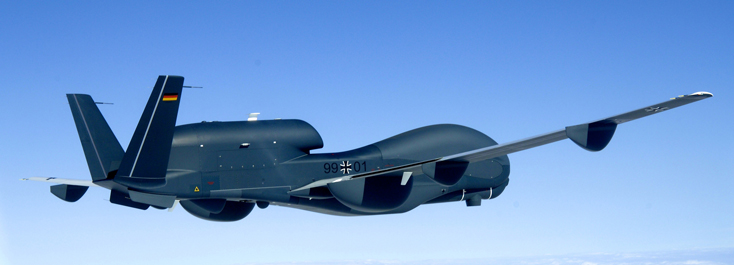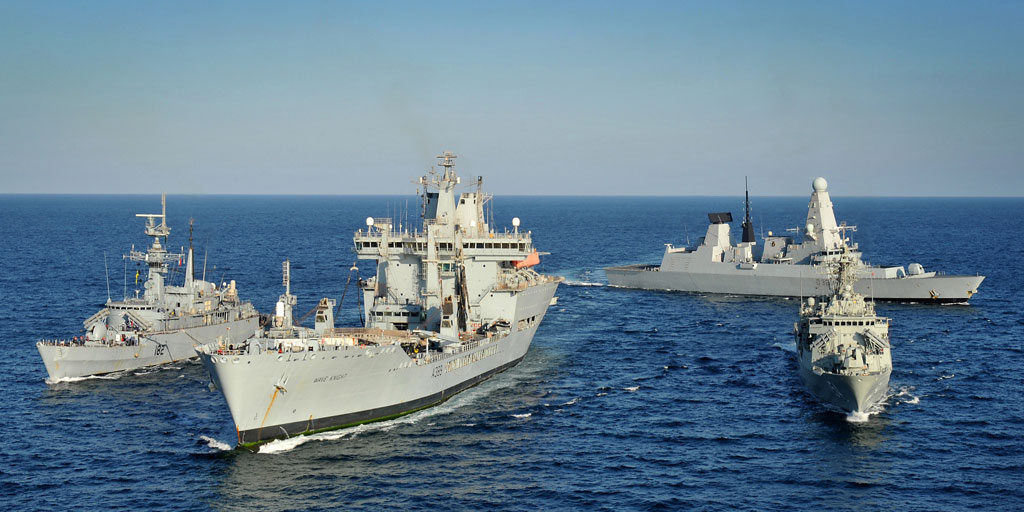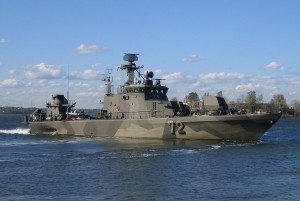This article is a part of The Hunt for Strategic September, a week of analysis on the relevance of strategic guidance to today’s maritime strategy(ies). As part of the week we have encouraged our friendly international contributors to provide some perspective on their national and alliance strategic guidance issues.
 After this week’s vote in Germany Chancellor Angela Merkel is likely to govern at least until 2017. Although fundamental strategy and policy shifts are unlikely, that does not mean everything will stay the same, particularly with regards to jobs in Brussels. Moreover, Germany will face interesting arms procurement debates and may have to re-evaluate its place in Europe.
After this week’s vote in Germany Chancellor Angela Merkel is likely to govern at least until 2017. Although fundamental strategy and policy shifts are unlikely, that does not mean everything will stay the same, particularly with regards to jobs in Brussels. Moreover, Germany will face interesting arms procurement debates and may have to re-evaluate its place in Europe.
How to Read the Election Result
Security policy was not an issue during this election campaign. The withdrawal from Afghanistan is in progress and was thus no topic of concern. Hotspots like Syria, Iran, and Egypt may have occupied some time on German TV news, but did not do so in mind of the broader German public. The disaster of the cancellation of the Euro Hawk drone program affected only defense secretary De Maizière’s reputation. Therefore, security policy had no discernible impact on the election’s outcome.
While German voters actually turned right, they got a left wing majority in parliament. The CDU, FDP and the new eurosceptic AfD parties together earned 51 % of all votes. However, as the FDP and AfD missed the 5% voter threshold to enter the Bundestag, parliament now has a left-wing majority. Nevertheless, Merkel’s CDU party will keep governing. Most likely with the SPD, but maybe even with the Greens.
Programmatically, no Merkel-led coalition would face serious difficulties in security policy. The CDU, SPD, and the Greens all-support NATO and the EU’s Common Security and Defense Policy (CSDP), but have a low appetite for an active (and costly) security policy in Europe’s neighborhood let alone across the globe. After 13 years in Afghanistan, all parties will be heavily reluctant to participate in large-scale expeditionary combat missions. Thus, security policy will not be one of the controversial topics during the coming coalition negotiations.
If looking for something interesting to watch, it might be the fight for a top job for a German in Brussels next year. It is clear that Germany will claim one of the five available positions*. Which seat Germany claims and which party will send a candidate will be subject to the coalition negotiations. There were rumors that CDU defense minister De Maizière could go for Rasmussen’s job at NATO. However, it could also turn out that a Social Democrat or Green guy will run for Catherine Ashton’s position as the EU’s Foreign Affairs and Security Policy head – coalition negotiations produce all kinds of strange outcomes after all. We will see when we get there.
New Drones, Fighters and Ships?
Do not expect rising troop numbers. Either the Bundeswehr will remain at about 185,000 soldiers or it will shrink further to 150,000 or even 120,000. As it is, the army struggles for recruits enough anyway. Plans for drastic cuts in Germany’s federal budget have already been leaked. If implemented, the Bundeswehr will once again have to do its share. Too few recruits could be used in arguments for further reductions.
There will, however, be three interesting procurement debates. First, the drone debate will re-surface. Since the early 2000s, all governing parties supported the decision to buy the Euro Hawk. The need for drones is surely there. Thus, it is likely that there will be new UAV procurement decision before 2017.
Second, a topic not yet being discussed is the replacement of Germany’s aging Tornados. These are the Luftwaffe’s only jets who can contribute to NATO’s Nuclear Sharing arrangement. Hence, the question will be if Germany acquires a new fighter-bomber, invests money in making some Eurofighters nuclear-capable or leaves Nuclear Sharing after 2020. With an eye on the German budget and Europe’s financial situation, neither German parties nor the widely nuclear disarmament-obsessed media and public will support spending money on aircraft to carry nuclear warheads. In consequence, prepare yourself for another failure of Germany’s Alliance solidarity.
Third, the German Navy has repeatedly called for two Joint Support Ships (JSS), like the Dutch Rotterdam-class LPD. Such ships are desirable. The German Navy contributes simultaneously to NATO, EU, and UN operations, while participating in international maneuvers and conducting smaller own SIGINT operations. One or two JSS would be a boost for Germany’s power-projection ability and its contribution to international operations. However, it remains to be seen whether there is enough political will and cash to go for JSS.
The Bundeswehr’s New Missions
As said, due to Afghanistan, Germany’s political elite is very reluctant to grant the Bundeswehr new missions. The basic rule: The larger the number of troops, the farther away the operational theater, or the more combat involved the larger the German reluctance. For example, Berlin would ignore a UN call for 5,000 German soldiers to fight in the eastern Congo. Sending 50 officers for training or observation to some place close to Europe would probably get Merkel’s okay. As in Mali and Somalia, Germany’s land forces after Afghanistan will find themselves mostly in training, observation, and disaster relief missions.
Air operations other than NATO Air Policing will also find low support in the Bundestag, the parties, media and public. Only with a clear UN mandate might Germany be willing to send fighters for combat missions. One more reason to send fighters, when called, is to get rid of the image of being an unreliable ally. However, as it did before regarding Libya, decisions like this will not depend on any strategy, but rather on the political situation at home.
Silently, but steadily, the German Navy has done a lot in international operations, especially in the Mediterranean. However, few have recognized that there is since 2002, although within different mandates, a permanent German naval presence in the Indian Ocean. The piracy offshore West Africa makes it likely that we will see the German navy also in the South Atlantic. As German naval missions so far have involved little combat and are publicly not recognized, one can expect that Germany’s naval activities remain the same. Nevertheless, other than for friendly port visits or disaster relief, Berlin will not send warships or submarines east of Malacca.
EU Consensus is Necessary
We will see when the on-going fiscal crisis returns, but right now, it seems that EU’s December summit is really going to talk about security policy (although schedules in Brussels can change very quickly). This is truly necessary, because in the recent past the EU as a security actor has been plagued by disaster (Libya, Mali, Syria, et.al.). It is necessary to decide two things in December: The way for new common strategic vision and to how to increase integration of the armed forces.
For the first goal, Germany, France, and Britain would have to find some kind of geopolitical consensus. However, while Germany has a comfortable working relationship with the Chinese, Britain is reviving its alliance with Japan and talking about plans for troops East of Suez. The extent of the diverging security policy cultures between the Big Three was also seen in their approaches to Syria. In addition, a new coalition partner for Merkel will not change this, rather it could make things even worse, as the SPD is very attached to Russia.
To make EU security policy work, Paris and London would have to step back from their activism and go a bit more German, while Berlin would have to give up its muddling through and go a bit more Anglo-French. Here, a new European Security Strategy might help, but not one decided in one night by the governments. Instead, the EU should look to what NATO did in 2009-10. The Alliance started an open and public process with all member and partner states to debate its new strategic concept. The EU should take that as an example and start its own one- or two-year consensus-building process to debate and develop a new European Security Strategy.
Increased integration of European armed forces is the only way to prevent Europe from falling from part into complete military irrelevance. Germany has already started deeper military integration with the Netherlands and Poland. Moreover, CDU parliamentarians like Andreas Schockenhoff and Roderich Kiesewetter have called publicly for even deeper cooperation of the Bundeswehr with other European forces. But no matter who joins Merkel’s government now and no matter whether the Bundeswehr has 185,000 or 120,000 troops, there are no fundamental changes in sight. Expect Germany to muddle through international security as it did before.
Finally, only a left wing government by SPD, Greens, and Socialists would bring fundamental change to the German attitude towards military missions. In all other constellations, the approach will stay pretty much the same.
Felix Seidler is a PhD candidate at the Institute for Security Policy, University of Kiel, Germany, and a German security affairs writer. This article appeared in original form at his website, Seidlers Sicherheitspolitik.




